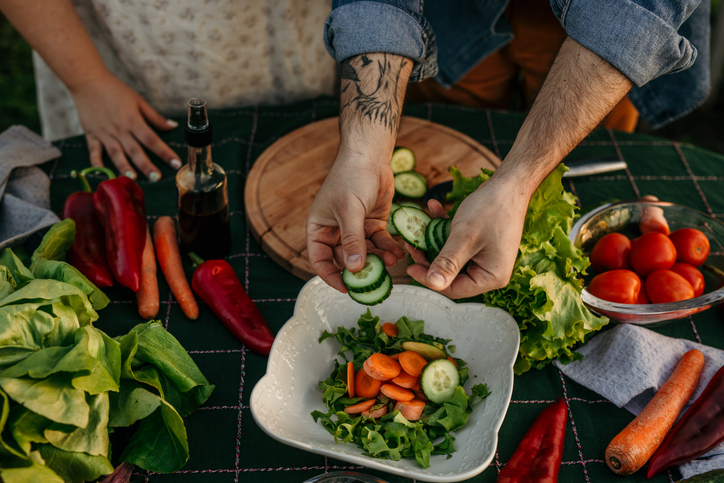Eating Healthy and Seasonal This Fall

Eating in-season produce is a perfect way to enjoy healthy foods. Incorporating these foods into your diet provides an excellent variety of vitamins, minerals, antioxidants, and fiber. Eating healthy also boosts the immune system, helping us to fight off illness. Fresh seasonal produce is a budget friendly way to stretch your food dollars.
Here are some popular fall produce items that are readily available at grocery stores and local farmers markets.
Apples and Pears
Fall is peak apple and pear season. These fruits are available at the grocery store, but there may be nearby options to pick your own. Within a two hour drive north of Atlanta are several apple orchards near Ellijay and Blue Ridge, Georgia. Picking your own apples can be a fun fall activity for families. Apples and pears are rich in vitamins, fiber, and antioxidants. These fruits can be enjoyed raw, used in baking, or cooked. They are tasty additions to any lunchbox.
Pumpkin
Pumpkin is actually a fruit. It is high in vitamin A, beta-carotene, and potassium. Pumpkins can be used in baking or treated like a vegetable in soups and savory dishes. The seeds are delicious when toasted. Large, jack o’lantern pumpkins are not ideal for eating. The smaller varieties of pumpkin are better for cooking since the flesh is denser, smoother, and higher in sugar content.
Hard Squash
Varieties of winter, or hard squash, include acorn, butternut, Hubbard, turban, and spaghetti squash. They are all low in calories, and high in vitamins, fiber, and potassium. Hard squashes can be baked or roasted whole, halved, or cubed.
Other Fall Vegetables
Carrots, parsnips, sweet potatoes, beets, broccoli, cauliflower, and Brussels sprouts are popular autumn vegetables. There are many ways to prepare them including in soups, stews, and side dishes. Raw carrots are easy to include in lunch boxes. Health benefits of these vegetables include being a good source of vitamins A, C, and K, potassium, magnesium, fiber, and antioxidants.
Dark Leafy Greens

Spinach, kale, arugula, and Swiss chard can be mixed with other greens to make a healthy salad. These greens are packed with fiber, iron, potassium, magnesium, calcium, and folate, a B vitamin that promotes heart health.
Eating Healthy
A healthy diet is key in maintaining a healthy weight. Following a healthy diet helps to lower blood pressure and cholesterol, and reduces the risk of type 2 diabetes. The physicians at RMD Primary Care are happy to answer questions about weight loss and a healthy diet. Contact us to schedule an appointment.




